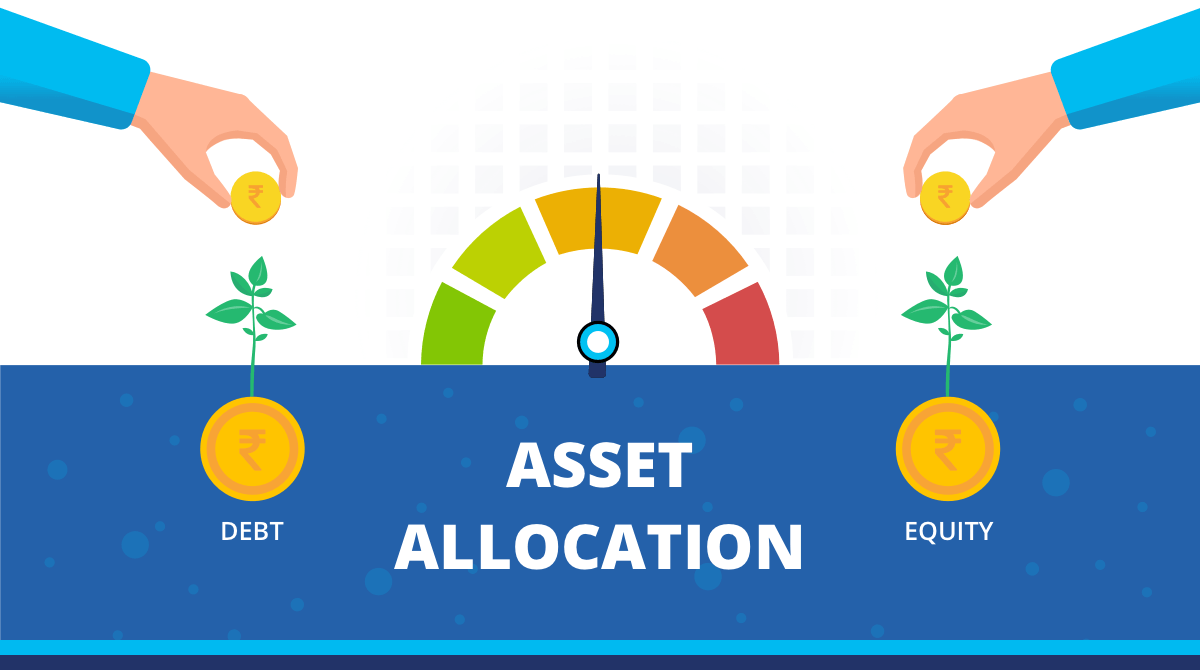Asset allocation in simple terms refers to how you distribute your wealth among different asset classes such as equity, debt, real estate, gold, etc. It is very important for achieving success in personal finance. With the right asset allocation strategy, we can ensure that our wealth is protected in all market scenarios. It will help to ensure that we have the money available for our goals when they come near. Not all investments may perform equally well at the same time. But if the asset allocation is proper then even if one or more investments do poorly the others can outperform them and thus bring up the entire portfolio.
As a thumb rule, we should have more exposure to equity when we are young and gradually reduce it as we grow older. This is in accordance with the fact that when we are young, we have more risk taking ability as compared to when we grow old. Even if we make any financial mistakes in our 20s and face some losses due to it, we still have sufficient years ahead of us to make up for that loss. But the same cannot be said for someone who is in their late 40s or 50s.
So without further ado, here is the asset allocation plan that I recommend. Please keep in mind that it is just a general guideline. It may vary from person to person based on their risk appetite. Please consult with your financial advisor before finalizing on a plan.
- Age: 20-35 years, Equity: 80% Debt: 20%
- Age: 35-40 years, Equity: 60% Debt: 40%
- Age: 40-45 years, Equity: 40% Debt: 60%
- Age: 45-50 years, Equity: 30% Debt: 70%
- Age: 50-55 years, Equity: 20% Debt: 80%
- Age: 55 years onwards, Equity: 10% Debt: 90%.
Note: In equity we can have several investments such as stocks, equity mutual funds, start up investments, etc. All these are high return investments but they are also volatile. So it is best to invest in these products for the long term(at least 10 years). Debt on the other hand, have less inherent risk but on the downside they cannot provide returns on par with equity. Common debt investments are debt mutual funds, fixed deposits, recurring deposits, physical gold, gold bonds, etc.
